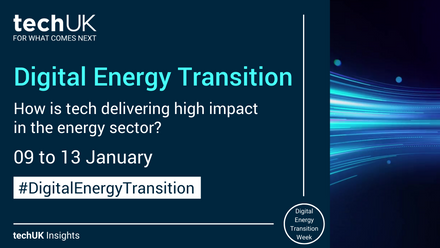Could Quantum Computing hold the key to sustainability?
Quantum driven technologies, solutions, products and services are expected to bring profound changes to the technology sector and will be transformational to areas such as national security, finance, telecommunications,â¯constructionâ¯and civil engineering.â¯â¯
As the UK positions itself for commercialisation of quantum technologies, and we look to how the tech sector can exploit and utilize quantum, we also need to create an engaged and informed discussion on how quantum aligns with businesses’ sustainability strategies.
Quantum can potentially support sustainability endeavors, but is not without its own environmental challenges, – and, crucially, a means to attribute carbon from quantum to products and services that use it, must be agreed. Below we will examine some of the key opportunities and concerns of quantum for the climate.
Quantum Cooling
It is first important to recognize that for some – but not all – quantum computers to work significant cooling is needed. Quantum chips have to operate at near absolute zero which in turn has a significant environmental impact. Because of this, Project Q rightly states in a recent article that quantum computers use more power than classical computers because of their extreme cooling requirements. However, once cooled, processing information uses almost no power. For example, there are quantum computing platforms which avoid the need for qubit cooling altogether, such as ORCA Computing’s quantum computing system which uses single photons for qubits which operate at room temperature, without the need for cryogenic cooling; or trapped ion quantum computing can operate without very low temperatures.
Quantum Solutions for Sustainability
Currently, quantum does not surpass the processing power of classical computing. But if this happens, quantum will be able to solve equations that the classical computers could not solve in thousands of years of processing.
If applied to current low-emission technologies, quantum computing could contribute to solutions that change how we generate and store power, enable material discovery, store carbon and ultimately may play a significant role in mitigating climate change. For example, with Quantum, battery research could be millions of times faster than conventional computers and can rapidly calculate new formulations that offer higher energy density for energy storage.
The energy impact of data processing is also a key area where quantum could play a crucial role. Collecting, transmitting, storing and conducting data analytics all require energy, and is coming under increasing scrutiny. A well cited paper by Cornell University, found that training an NLP deep learning algorithm produced the equivalent of 626,000 pounds of carbon dioxide—nearly five times as much as the lifetime emissions of the average American car. While moving to electricity grids powered by renewable energy will be critical in reducing the carbon impact, quantum could also play a crucial role in cutting the energy demanded by data analytics by speeding it up to a fraction of the current time.
As the UK moves towards commercialisation, it is critical the tech sector proactively engages with the debate around sustainable use of quantum technologies and provide solutions to the below areas:
- Generating awareness and understanding of the carbon and energy impact for businesses using classical and quantum computers
- Explore how quantum solutions could support the race to net zero
- How quantum could can be used alongside other emerging technologies such as AI, to minimise our future energy impact.
- How collaboration between Government, Industy and Research can support quantum and sustainability
techUK's Quantum commercialisation workstream will be gathering member views on Quantum, and its role in achieving net zero. We are also understanding how we can engourage the commercialisation of these quantum solutions in the UK, alongside other emerging technologies such as AI, through collaboration between Government, Industy and Research.
Please do get in contact if you want to get involved. In the meantime you can learn more about techUK's Quantum Campaign here

Laura Foster
Laura is techUK’s Associate Director for Technology and Innovation.







